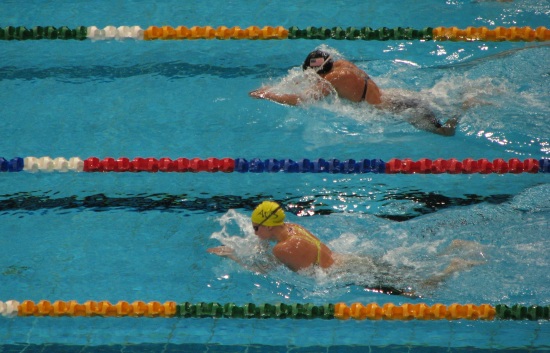There has been much concern by the Olympic bosses at Locog recently that official sponsors of the London 2012 Olympic Games may have issues with competing traders poaching business away from them at Olympic commercial properties around the country. This has led to drastic and much publicised moves aimed at satisfying sponsors such as Visa and McDonald’s, examples being banning the use of any card without the Visa logo on it from being used in Olympic affiliated commercial properties and even, last week, preventing catering teams across the UK from including chips on their menus unless accompanied by fish – the exception to the rule being McDonald’s commercial property restaurants, naturally.

In order to enforce these controversial new rules, Locog have employed a police force of sorts to patrol the London 2012 commercial properties to ensure that there are no breaches that could anger sponsors are taking place. Known as “Olympic enforcement officers”, these 300 officials will run checks on businesses in the UK this summer, making sure that no commercial property company is illegally associating itself or its products with the Games.
Additionally, they will have the responsibility of ensuring that no traders within “Olympic event zones” are breaking the strict advertising and trading rules set down by Locog in their temporary or permanent commercial property stores over the summer.
Businesses wishing to trade in these areas, or zones, over the course of the Olympics had to have applied for permission by March of this year – this included official sponsors wishing to advertise or open temporary commercial properties, such as McDonald’s largest commercial property restaurant in the world which will be demolished upon the conclusion of the Games.
Under Locog’s strict advertising and merchandising laws, no commercial property business in the UK may use the Olympic logo, name, rings or motto unless they are an official sponsor. This even includes vaguely associated advertising gimmicks, such as the words “twenty twelve”, “London” or “Gold”.
Olympic trading standards officials, who have been seconded from local councils across the country and trained by Locog, will have the power to enter commercial property business premises and demand the removal of any items seen to breach the strict advertising and trading policies. They can even bring court action against those businesses should they suspect the breach of the legislation to be too extreme, with commercial property companies facing fines of up to £20,000 if found guilty.
Paul Jordan, an expert in brand protection at Bristows solicitors, believes that bringing in a miniature police-type force is an extreme step by Locog in protecting the London 2012 sponsors from British commercial property businesses.
He says; “No other brands would have people walking the streets being their eyes and ears, protecting their interests.”
Yet Locog responded by claiming that they were simply doing what was necessary to protect the interests of the companies who had invested in the event.
Locog said, in an official statement regarding the enforcement officers; “These rights are acquired by companies who invest millions of pounds to help support the staging of the Games.
“People who seek the same benefits for free – by engaging in ambush marketing or producing counterfeit goods – are effectively depriving the Games of revenue.”
Do you believe that Olympic enforcement officers are a necessary addition to help Locog protect the interests of official Olympics sponsors from commercial property businesses in the UK? Or do you think that the Olympic organising committee should be doing more to help small commercial property companies, especially given the current economic climate?